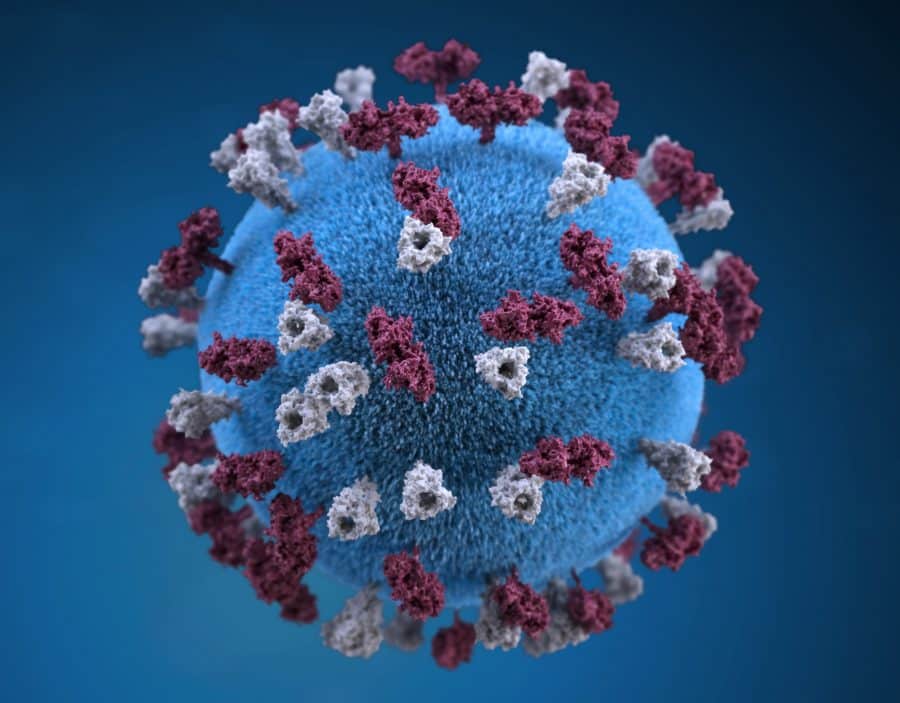Quick Facts About HIV
| A | B |
|---|---|
| Full Name | Human Immunodeficiency Virus (HIV) |
| Virus Type | Retrovirus |
| Transmission | Primarily through unprotected sex, blood, and mother-to-child during childbirth or breastfeeding |
| Effect | Attacks the immune system, leading to weakened defense against infections |
| Progression | Can lead to Acquired Immunodeficiency Syndrome (AIDS) in its advanced stage |
| Symptoms | Early stages may be asymptomatic; later stages include fever, fatigue, weight loss, and opportunistic infections |
| Cure | No cure |
| Prevention | Safe sex practices, using clean sharp objects, pre-exposure prophylaxis (PrEP) |
| Treatment | Antiretroviral therapy (ART) slows virus progression, manages symptoms |
| Testing | Diagnosis via blood tests like ELISA and Western blot |
| Name in Other Languages | • Arabic: فيروس العوز المناعي البشري (HIV) • Basque: Gizaiza immunodeficiencia birusea (GIB) • Bengali: এইচআইভি (এইচ আই ভি) • Bosnian: Virus humane imunosupresije (HIV) • Bulgarian: ХИВ (Вирус на човешката имунна недостатъчност) • Chinese (Mandarin): 人類免疫缺陷病毒 (人類免疫缺陷病毒) • Croatian: Virus ljudske imunodeficijencije (HIV) • Czech: Virus lidského imunodeficitu (HIV) • Danish: Human immundefektvirus (HIV) • Dutch: Human immunodeficiëntievirus (HIV) • Estonian: Inimunodefiitviirus (HIV) • Finnish: Ihmisen immuunikatovirus (HIV) • French: Virus de l'immunodéficience humaine (VIH) • German: Humanes Immundefizienz-Virus (HIV) • Greek: Ιός ανθρώπινης ανοσοανεπάρκειας (HIV) • Hebrew: וירוס כשל חיסוני אנושי (HIV) • Hindi: एचआईवी (एचआइ वी) • Hungarian: Humán immunodeficiencia vírus (HIV) • Indonesian: Virus imunodefisiensi manusia (HIV) • Italian: Virus dell'immunodeficienza umana (HIV) • Japanese: ヒト免疫不全ウイルス (HIV) • Korean: 인간 면역결핍 바이러스 (HIV) • Latin: Virus immunodeficientiae humanae (HIV) • Norwegian: Humant immunsviktvirus (HIV) • Persian: ویروس نقص ایمنی انسانی (HIV) • Polish: Wirus niedoboru odporności ludzkiej (HIV) • Portuguese: Vírus da imunodeficiência humana (HIV) • Romanian: Virusul imunodeficienţei umane (HIV) • Russian: Вирус иммунодефицита человека (ВИЧ) • Spanish: Virus de la inmunodeficiencia humana (VIH) • Swedish: Humant immunbristvirus (HIV) • Thai: ไวรัสอิมมิวโนดีฟิเซียนซีของมนุษย์ (เอชไอวี) • Turkish: İnsan bağışıklık yetmezliği virüsü (HIV) • Ukrainian: Вірус імунодефіциту людини (ВІЛ) • Vietnamese: Virus gây suy giảm miễn dịch ở người (HIV) |
It may surprise you to find out that your state of origin or state of residence is among the states with the highest HIV rate in Nigeria. Although most people don’t know, Nigeria has the second highest HIV infected population in the world, and the people affected cut across the different spheres of life in the country.
The rate of HIV infection is usually attributed to immoral lifestyle, especially among the youths. While this is not always the case, although it contributes, many people get infected with the virus while maintaining their high moral standards. Some people get infected with HIV during their cosmetic routine, such as barbering their hair, or getting their ears pierced.
In this article, we will discuss the things that are peculiar to the states with the highest HIV rate in Nigeria, after identifying them. We will also look at where Nigeria stands in the continent and in the world with regards to HIV infection spread and curbs.
What is HIV?
HIV is not a new infection, as sensitization on this has been around many schools, religious institutions, multimedia avenues, clinics, and hospitals. However, if per chance, you have no idea what HIV is, it is a viral infection fully known as Human Immunodeficiency Virus. It is the virus that causes the disease, AIDS, fully known as Acquired Immunodeficiency Syndrome. It is characterized by weakening the human immune system, and creating room for other diseases and infections to invade the body.
The more the HIV virus replicates in the body of an infected individual, the weaker the immune system is. It has no known cure as at the time of this publication, but researches and efforts are ongoing to get that done. However, medications to reduce the viral load in an infected individual are available in many heart-to-heart centers across the country. They are called antiretroviral drugs.
In Nigeria, many people living with HIV/AIDS are subjected to stigmatization, as most Nigerians believe that the virus is contracted through sexual intercourse with more than one partner. However, this is far from the truth. An exchange of bodily fluid, such as saliva, blood, semen, can lead to transfer of the virus from an infected person to a healthy person. Therefore, unprotected sex, cut from objects bearing the virus, and transfusion of unscreened blood, can lead to HIV infection.
States with the Highest HIV rate in Nigeria
While Nigeria is known, among its citizens, to be particular about morals, especially sexual promiscuity, some may argue about the fact that Nigeria is one of the leading counties with the highest HIV infection rate in the world. in the world, as at 2019, Nigeria occupies the second position in the world. However, there has been a drop in the prevalence of HIV in Nigeria since then.
States with the Highest Rate of HIV Prevalence in Nigeria
| States | HIV Prevalence Rate (%) |
|---|---|
| Benue | 5.7% |
| Akwa Ibom | 4.3% |
| Lagos | 3.2% |
| Kaduna | 3.1% |
| Kano | 3.0% |
| Oyo | 3.0% |
According to data, 41% of the population of people living with HIV in Nigeria are from six states. While this does not point to any form of defamation to any of the states, it shows the wide disregard from preventive measures that have been announced over and over for the populace, the world over, to follow.
The states, in no particular order, include:
Akwa Ibom
Akwa Ibom has always had a higher HIV infection rate. In 1999, the rate of HIV infection in this state was 12.5%. however, it declined to 7.2% in 2003, only to shoot up to 10.8% in 2014 but reduced to 5.5% as at 2018. There is no recent data, which makes it impossible to rank it in a particular order among the states with the highest HIV rate in Nigeria.
The reason for this high infection rate, because it is prevalent among adults than children, may be largely attributed to engaging in unprotected sex. This makes the initially high HIV prevalence difficult to bring down.
However, a recent study shows that as at 2020, the HIV prevalence in Akwa Ibom is at 4.8%; an improvement over the figure for 2018.
Kaduna
Kaduna is a major state in the Northern part of Nigeria and is home to both educated and non-educated individuals. It is a state that obeys the sharia law and therefore curbs the possibility of practicing prostitution, which is one of the most affected profession. However, it is found that the spread of HIV in the state stems from fear of stigmatization from speaking out against the practices that lead to its spread and co-habitation.
The dependence of archaic methods of barbering the hair is one of the leading causes of HIV spread in Kaduna. Many men still use blades to scrape their hair. Sometimes, the same blade can be used on more than one person. As one of the states with the highest HIV rate in Nigeria, and with the population of the state, drastic measures have to be taken to prevent further prevalence of the virus.
Benue
Benue state is in the middle belt of Nigeria. It was the leader of the states with the highest HIV rates in Nigeria as at 2014. However, its HIV prevalence rate has dropped from 12.9% to 4.7%. The high virus prevalence in the state in the past can be attributed to the level of carelessness among the adults in the state.
However, the drop in the prevalence rate is commendable, and one can only hope the efforts to further reduce the figures will continue.
Kano
Kano is another Northern state that is one of the states with the highest HIV rates in Nigeria. It has similar atmosphere and culture with Kaduna and the reason for the high prevalence of HIV in the state is the same as in Kaduna.
Provision of enough housing to discourage co-habitation and sharing of some objects that may predispose them to HIV/AIDS should be sped up.
Oyo
A large state in the South Western part of Nigeria, Oyo state is one of the states with the highest HIV rate in Nigeria. Although it has a large population, it is a haven for sex workers. Many men patronize sex workers and usually engage in intercourse without any form of protection against HIV and other sexually transmitted infections.
Infidelity is also rife in this area, facilitating the fast spread of HIV among the many sexual partners an infected individual already has. Also, there is a passive attitude towards medications as most people in the state will readily use traditional medicines to treat symptoms.
Other practices, such as female circumcision, bloodletting, blood oaths, and the likes, mostly practiced in the rural areas, make Oyo one of the states on this list. They are also responsible for higher HIV prevalence in the rural areas of the state.
Lagos
Lagos state is known to be a commercial state in Nigeria. However, it is one of the states with the highest HIV rate in Nigeria, largely due to the fast lifestyle of many of its residents. With high population influx every day, Lagos state admits numerous HIV positive individuals into the state.
Prostitution is one of the serious reasons for HIV prevalence in Lagos state. Many men who patronize these sex workers contract HIV from them and pass it on to their numerous sex partners. Many men contract it from their sex partners and pass it on to their husbands, who also pass it on to other women.
Also, in Lagos, there is a probable high population of gay men, who are part of the most affected group of people in Nigeria. Illegal hospital practices, such as transfusing unscreened blood to patients, are also rife in unregistered hospitals in Lagos state.
Provision of more registered hospitals and blood screening technology may be helpful in curbing the HIV prevalence in Lagos state. Also, enforcing the law against prostitution should be risen and upheld.
Conclusion
HIV prevalence in Nigeria is largely contributed by six states; Benue, Lagos, Oyo, Akwa Ibom, Kaduna, and Kano states. Most of these states are in the southern part of Nigeria and the reason for HIV prevalence in each state differs to some extent.
If you find yourself in any of these states, be extra careful, as you should also be in other states.



